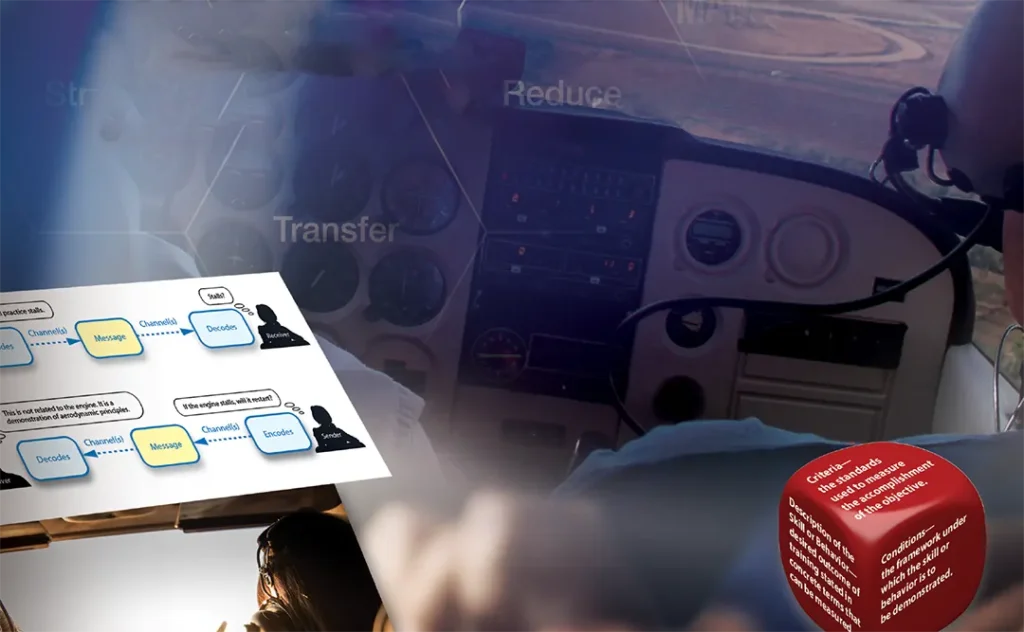
For ground instructors, flight instructors, and aviation maintenance instructors, the Aviation Instructor Section is an invaluable resource. This section was developed with input from aviation educators and professionals in the field to help new instructors grasp and use the principles of training.
This part offers current information about learning and teaching, regardless of how much experience you have had teaching. It provides advice on how to teach students aeronautical knowledge and abilities in an efficient manner so that they receive thorough and interesting teaching.
Enhancing Teaching Effectiveness
The updated information in this part is equally beneficial to experienced aviation instructors. Instructors can become more effective in training activities by keeping up with the latest methods and approaches to teaching. In the field of aviation training, there is a constant need for improvement, and this section provides instructors with a useful tool to stay up to date and enhance their teaching abilities.
Stay Informed and Improve
The Aviation Instructor Section is an invaluable resource for anyone working as a ground instructor, flying instructor, or aviation maintenance instructor. It offers pertinent and useful knowledge to support your success in your capacity as an aviation instructor. You can help to create informed and proficient aviators by remaining up to date and always refining your instructional strategies.
Risk Management and Single-Pilot Resource Management
- Risk Management and Single-Pilot Resource Management
- Defining Risk Management
- Three-P Model for Pilots
- Hazard List for Aviation Technicians
- Pilot Self-Assessment
- Situational Awareness
- Single-Pilot Resource Management (SRM)
- Aeronautical Decision-Making
- Teaching Decision-Making Skills
- Assessing SRM Skills
Human Behavior
- Human Behavior
- Definitions of Human Behavior
- Motivation
- Maintaining Motivation
- Human Needs and Motivation
- Human Nature and Motivation
- Defense Mechanisms
- Learner Emotional Reactions
- AMTs and Flight Instructors as Learners
- Teaching the Adult Learner
The Learning Process
- The Learning Process
- Learning Theory
- Perceptions
- Insight
- Acquiring Knowledge
- Thorndike and the Laws of Learning
- Domains of Learning
- Characteristics of Learning
- Learning Styles
- Acquiring Skill Knowledge
- Types of Practice
- Evaluation Versus Critique
- Putting It All Together
- Scenario-Based Training (SBT)
- Errors
- Memory
- Retention of Learning
- Transfer of Learning
Effective Communication
- Effective Communication
- Basic Elements of Communication
- Barriers to Effective Communication
- Developing Communication Skills
The Teaching Process
- The Teaching Process
- What is Teaching?
- Instructor’s Code of Ethics
- Course of Training
- Preparation of a Lesson
- Presentation of a Lesson and Organization of Material
- Training Delivery Methods
- Problem-Based Learning
- Electronic Learning (E-Learning)
- Cooperative or Group Learning Method
- Demonstration-Performance Method
- Drill and Practice Method
- Application and Assessment of the Lesson
- Instructional Aids and Training Technologies
- Test Preparation Material and Future Developments
Assessment
- Assessment
- Assessment Terminology
- Purpose of Assessment and General Characteristics of Effective Assessment
- Traditional Assessment
- Authentic Assessment
- Choosing an Effective Assessment Method
- Critiques and Oral Assessments
- Scenario-Based Training
Planning Instructional Activity
- Planning Instructional Activity
- Course of Training and Blocks of Learning
- Training Syllabus
- Lesson Plans
- Scenario-Based Training (SBT)
- Single-Pilot Resource Management
Aviation Instructor Responsibilities and Professionalism
- Aviation Instructor Responsibilities and Professionalism
- Aviation Instructor Responsibilities
- Flight Instructor Responsibilities
- Aviator’s Model Code of Conduct, Safety Practices and Accident Prevention
- Flight Instructor Qualifications
- Professionalism
- Evaluation of Learner Ability
- Professional Development
Techniques of Flight Instruction
- Techniques of Flight Instruction
- Practical Flight Instructor Strategies
- Integrating Instruction Techniques
- Demonstration-Performance Training Delivery Method
- Positive Exchange of Flight Controls
- Sterile Flight Deck Rule
- Use of Distractions
- Integrated Flight Instruction
- Assessment of Piloting Ability
Teaching Practical Risk Management during Flight Instruction
- Teaching Practical Risk Management during Flight Instruction
- Poor Risk Management and Accident Causality
- Risk Management Teaching Techniques by Phase of Instruction
- Managing Risk during Flight Instruction
